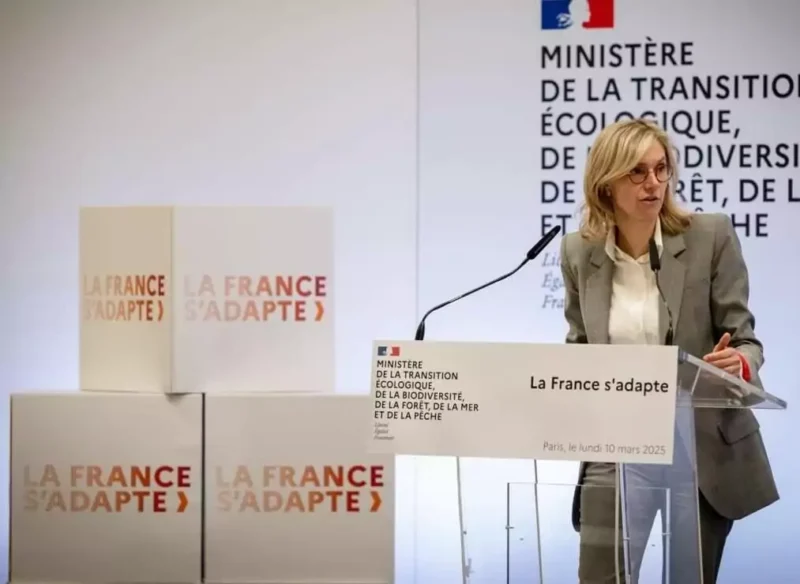On March 10, 2025, the French government announced the launch of the **third national climate change adaptation plan (PNACC)**. This plan aims to prepare France for the visible and expected impacts of climate change, particularly in the context of a warming of **+4°C by 2100**. This new plan emphasizes a **territorial approach** and the financing of adaptation measures.
The **PNACC** includes **52 measures** that cover the various impacts of climate change, with more than **200 concrete actions** spread over the short, medium, and long term. These measures affect all **territories**, including specific areas such as **coasts**, **mountains**, **forests**, and **agriculture**, as well as **all sectors of activity**.
**Agnès Pannier-Runacher**, Minister of Energy Transition, emphasized that this plan aims to make the country **ready** to face future climate challenges, focusing on a **systemic strategy** for adaptation.
One of the main aspects of the plan is its **territorialization**. This includes integrating an **adaptation** component for the second edition of the **regional COPs** (conferences of the parties), as well as increased support from local actors to ensure coordinated and effective adaptation. An **adaptation mission** will be sustained, with the appointment of an **adaptation referent** in each prefecture to coordinate efforts at the local level.
To support the implementation of the **PNACC**, the government announced several additional **funding** sources:
– **Barnier Fund**: 300 million euros in 2025 (+75 million compared to 2024), of which **40%** will be allocated to managing **natural risks**.
– **Green Fund**: 260 million euros to finance adaptation.
– **Water agencies**: 1 billion euros, of which **40%** will be dedicated to **nature-based solutions**.
– **30 million euros** for the prevention of **shrink-swell of clay soils**.
The government took into account the results of the **public consultation** held at the end of 2024. Several measures have been adjusted, particularly regarding **summer renovation of housing**, **mobilization of the banking sector**, and the **citizen reserve**. The government also plans to make the **reference warming trajectory for climate change adaptation (TRACC)** legally enforceable, in collaboration with local authorities.
The launch of this national adaptation plan represents a **strong commitment** from the French government to prepare the country for the impacts of **climate change**. With increased funding and a strengthened territorial approach, France seeks to implement sustainable solutions to adapt its territories and infrastructure to the upcoming climate challenges.
Source: [ecologie.gouv.fr](https://www.ecologie.gouv.fr/actualites/gouvernement-lance-nouveau-plan-national-dadaptation-changement-climatique)


